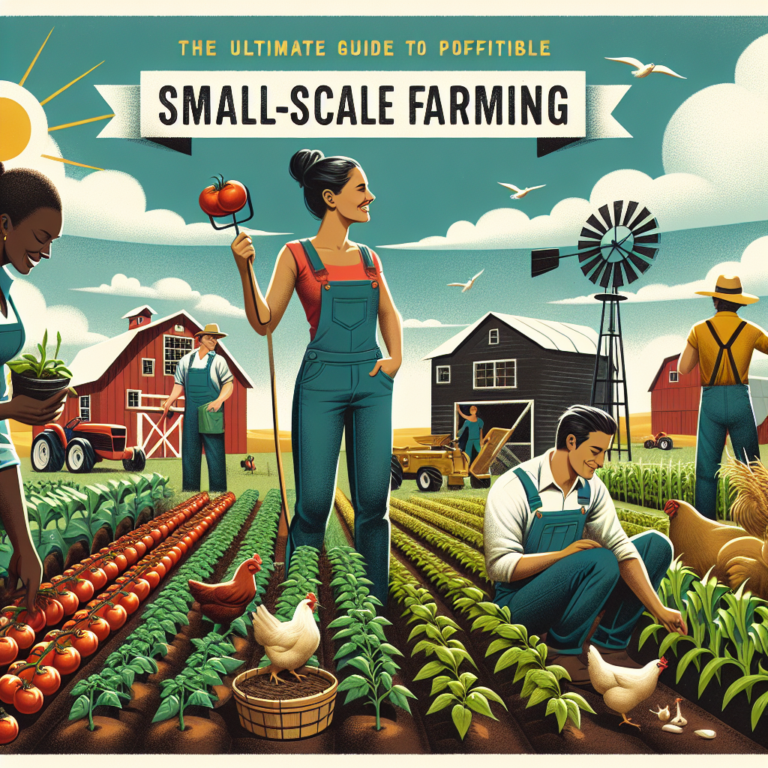Small-scale farming can be a lucrative and rewarding business venture for those with a green thumb and a drive to succeed. While many people may think that large commercial farms are the only way to make a profit in agriculture, the reality is that small-scale farming can be just as profitable, if not more so, with the right knowledge and strategy.
If you’re thinking about starting your own small-scale farm, here is the ultimate guide to profitable small-scale farming:
1. Start with a solid business plan: Like any other business, a successful small-scale farm starts with a solid business plan. This plan should outline your goals, target market, production methods, and financial projections. Having a clear plan will help you stay focused and organized as you start and grow your farm.
2. Choose the right crops or livestock: When it comes to small-scale farming, it’s important to choose crops or livestock that are in demand and have the potential to make a profit. Do some research to determine what crops or livestock are popular in your area and have a high market value. Consider factors such as climate, soil quality, and available resources when deciding what to grow or raise on your farm.
3. Invest in the right equipment: While you may not need the same level of equipment as a large commercial farm, investing in the right tools and machinery can help you increase productivity and efficiency on your small-scale farm. Look for equipment that is suitable for the size of your operation and can help you streamline your production processes.
4. Implement sustainable farming practices: Sustainable farming practices are not only good for the environment, but they can also help you save money and increase profits in the long run. Consider incorporating practices such as crop rotation, cover cropping, and integrated pest management to improve soil health, reduce input costs, and increase yields on your farm.
5. Market your products effectively: Marketing is key to the success of any small-scale farm. Take the time to develop a marketing strategy that will help you reach your target market and promote your products effectively. Consider selling your products at farmers markets, online marketplaces, or through a community-supported agriculture (CSA) program to reach a wider audience and increase sales.
6. Stay informed and adapt to changes: The agricultural industry is constantly evolving, so it’s important to stay informed about new trends, technologies, and regulations that may affect your small-scale farm. Be willing to adapt your practices and strategies as needed to stay competitive and profitable in the market.
Overall, small-scale farming can be a profitable and fulfilling business venture for those willing to put in the time and effort to make it successful. By following the ultimate guide to profitable small-scale farming outlined above, you can increase your chances of building a successful and sustainable farm that provides a good income and makes a positive impact on the environment and community.
